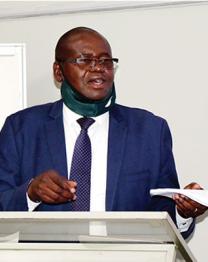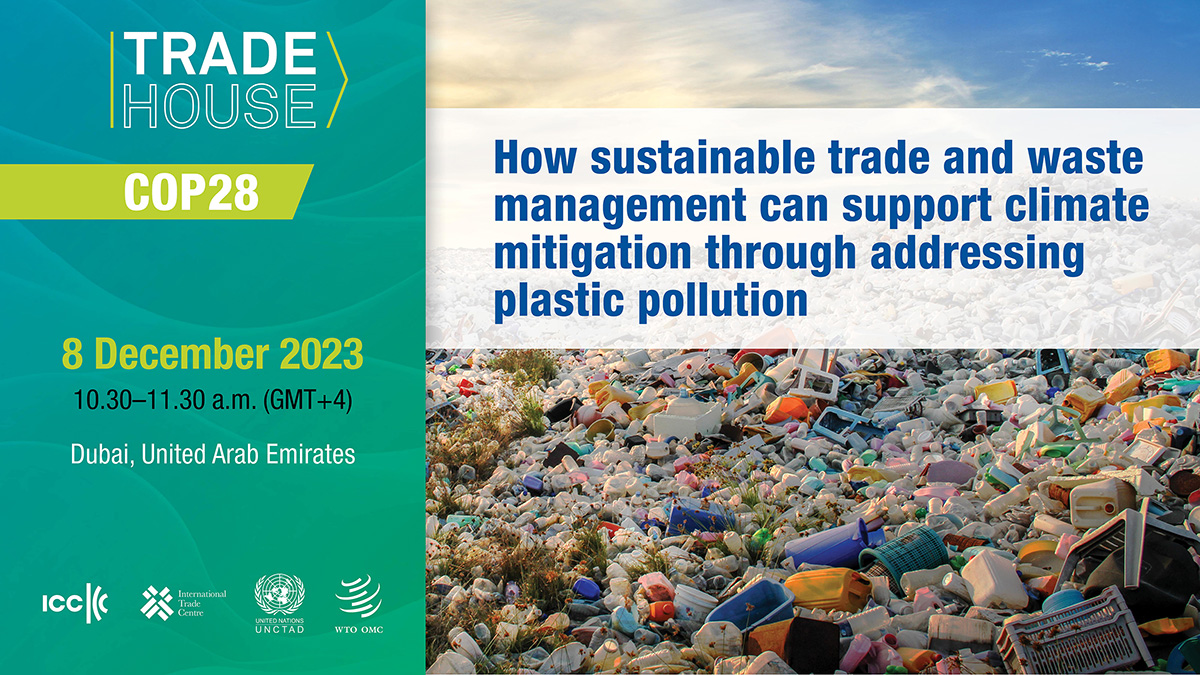
Mitigating climate change is a COP28 priority. COP28 will undertake a Global Stocktake of progress made towards meeting the Paris Agreement.
The growing production of plastic materials and plastic wastes generation contributes to climate change, as most plastics are from fossil origin. In 2019, plastics generated 1.8 billion tonnes of greenhouse gas (GHG) emissions, which is equivalent to 3.4% of global emissions.
Developing economies face complex tasks of managing plastic pollution, not least its wastes. Illegal landfills and storage sites, open burning lead not only to adverse effects to the public health and the environment but also increased GHG emissions. Unsustainable imports, in some cases illegal, into developing economies put additional burden on the waste disposal system. Valuable materials can be recovered, however the rest of wastes, including its toxic substances, end up in the environment.
There is an urgent need to collect and manage waste to prevent black carbon and methane emissions. On one hand, efforts in waste prevention, reuse, recycling, and energy recovery can accelerate GHG reduction. On the other hand, sustainable trade is a powerful mechanism to reshape the situation on the ground regarding the use of plastics. Novel designs of plastic products, non-plastic material substitutes and packageless distribution methods can have a lower environmental footprint, carbon impact and offer income generation, job creation and sustainable livelihoods.
The event will provide an opportunity to highlight the key matters from the WTO Dialogue on Plastics Pollution and Environmentally Sustainable Plastics Trade. Finally, the event will showcase the importance of responsible trade in plastics, and the environmentally sound management of plastic waste, which would also tackle climate change, promote healthy oceans and protect biodiversity.
This event will be live streamed
Programme
Moderator and introduction:
- Mr. Rolph Payet, Exeutive Secretary, Secretariat of the Basel, Rotterdam and Stockholm conventions
Panelists:
- H.E. Mr. José Antonio Dávalos, Ministry of Environment, Water and Ecological Transition, Ecuador (tbc)
- Mr. Aaron Chigona, Director General of Environmental Management Agency, Zimbabwe
- Ms. Stéphanie Bouziges-Eschmann, Secretary General, Fonds Français pour l Environnement Mondial
- Dr. Didacus Jules, Director General, Organisation of Eastern Caribbean States (OECS)
- Dr. Vong Sok, Head of the Environment Division and Assistant Director of the Sustainable Development Director, the Association of Southeast Asian Nations (ASEAN) Secretariat
- Ms. Anis Nassar, Lead, Circular Economy Innovation, World Economic Forum (WEF)
Comments by:
- Mr. Hoe Lim, Director, Trade and Environment Division, WTO Secretariat
- Ms. Chantal Line Carpentier, Head, Trade, Environment, Climate Change and Sustainable Development, UNCTAD
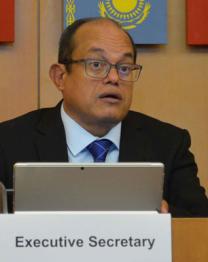
Rolph Antoine Payet FRGS is an international policy expert, researcher and speaker on environment, climate and island issues, and was the first President & Vice-Chancellor of the University of Seychelles.
He was Minister of Environment and Energy in the Cabinet of Seychelles from 2012 to 2014.
He is currently United Nations Executive Secretary for the Basel, Rotterdam and Stockholm Convention.
Mr Aaron Chigona is the Director General of Environmental Management Agency.
He holds a Diploma in Education Specialization in Agriculture, a BSc Agricultural Management and a MSc. Tropical Resources Ecology. He has over 20 years of experience as an environmentalist.
He also has experience as a lecturer, having lectured Zimbabwe Open University Agriculture students on a part-time basis between the period 2006 to 2009.
He is currently a Climate Change Country Negotiator Team Member and the Focal Point for African Ministerial Conference on the Environment National Focal Point since 2010.
He was appointed to the 2nd Radiation Protection Board in June 2016. In the 3rd Radiation Protection Board, he sits on the Finance Committee and the Operations Committee
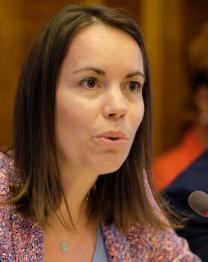
Stéphanie Bouziges-Eschmann is Secretary General of the French Facility for Global Environment (FFEM), since September 2018.
AgroParisTech alumni, with 20 years of experience, mainly for the French Ministry of Economy and the French Agency for Development (AFD), she is specialized on development issues, and sustainable agriculture and energy sectors. She is devoted to reconcile environment preservation and development in an innovative way.
Dr. Didacus Jules assumed the post of Director General of the OECS in May 2014. He is responsible for driving the regional integration thrust towards a single economic and social space involving ten Eastern Caribbean States.
Dr. Didacus Jules had extensive regional and international experience. He served as Registrar and Chief Executive Officer of the Caribbean Examinations Council (2008-2014) leading a thorough modernization of the Council. Dr. Jules has also served as Vice President Human Resources Cable and Wireless Saint Lucia (2005-2008); Permanent Secretary for Education & Human Resource Development Saint Lucia (1997-2008) as well as Permanent Secretary for Education and Chief Education Officer in revolutionary Grenada from 1981-1983.
Dr. Didacus Jules has provided consultancy services to national governments, regional and international organisations in the Caribbean, Africa, Europe and North America. He has also served on many private sectors, educational, and philanthropic boards. Dr. Didacus Jules holds a BA (Hons) from the University of the West Indies Cave Hill, an MSc in Curriculum & Instruction and a PhD in Educational Policy and Curriculum & Instruction from the University of Wisconsin-Madison as well as a MBA from the University of the West Indies Cave Hill.
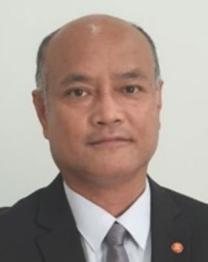
Dr. Vong Sok is the Head of the Environment Division and Assistant Director of the Sustainable Development Director, at the ASEAN Socio-Cultural Community Department of the ASEAN Secretariat.
He is a passionate and dedicated Environmental Professional, with over 20 years’ global environmental compliance and governance experience, including in-depth knowledge of environmental development, strategic planning, relationship building, operations control, and implementing environmental management systems.
He holds a bachelor’s degree in Forestry from Cambodia and a master’s degree in Environmental Science and Management from Belgium. He also completed his Ph.D. research on impact assessment and climate change at the University of Western Australia in 2012.
Professionally, he works on environmental assessment, planning, and management in Southeast Asia, intensively with government agencies, international organizations, development partners, and communities at the grass-root level. This provided him with specific assets to lead and coordinate at the strategic level; and deliver substantive impacts and contributions to this region.
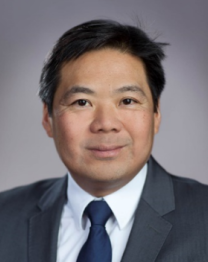
Aik Hoe Lim is Director of the Trade and Environment Division at the World Trade Organization and leads its work on environmental sustainability, climate change and trade, as well as on the Agreement on Technical Barriers to Trade. In this role, he has strengthened WTO's partnership with UNEP as well as other international environmental organizations. He led the establishment of WTO's Trade and Environment Week, which is now an annual flagship event for the organization. He joined the WTO in 1999 and served in the External Relations Division, the Director-General's Cabinet and the Trade in Services Division. He was previously Counsellor to two WTO Director-Generals, Advisor to the Director‑General's Consultative Group, and Secretary to WTO committees, working groups and negotiating bodies on services trade and domestic regulation. He represents the WTO in the UN Environmental Management Group and the UN Framework Convention on Climate Change, and is a member of the Advisory Board of the UNEP Global Environmental Outlook. Some of his publications include contributions to the "Research Handbook on Climate Change and Trade Law" (2017); "Win-Win: How International Trade Can Help Meet the Sustainable Development Goals" (2017); and an edited volume on "WTO Domestic Regulation and Services Trade" (2014).
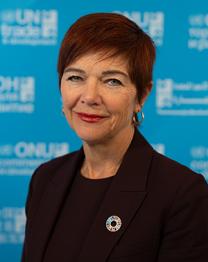
Dr. Carpentier, from Quebec, Canada, is Head of Trade, Environment, Climate change, and Sustainable Development Branch of UNCTAD’s Division on International Trade and Commodities (DTIC). Her work with governments and partners foster green, blue, circular, and impact economies that supported by trade, are key to addressing the triple planetary crisis: climate change, pollution and biodiversity loss. She came to Geneva after leading the UNCTAD New York office, representing the SG and coordinating UNCTAD’s support to inter-governmental negotiations of the UN General Assembly (2015-2023).
She held several other positions. At the UN Department of Economic and Social Affairs, she facilitated the engagement of NGOs, women and youth’s groups, business, local authorities, etc. in the SDGs negotiations and the UN Rio+20 Conference (2011-2015). She also supported the Commission on Sustainable Development research and negotiations on sustainable agriculture and sustainable consumption and production (2007-2011).
Prior to joining the UN, she Headed the North American Free Trade Agreement Commission for Environmental Cooperation’s, Environment, Economy and Trade Division (2000-2007), was Agro-environmental policy analyst for Winrock International (1998-2000) and post-Doctoral fellow/Brazil office manager for the International Food Policy Research Institute (1996-1998).
She has a PhD. in Agro-Environmental Economics from Virginia Tech, as well as a MSc. and BSc. in Agro- Economics from McGill University and is an ironman and ultramarathoner. She is a Yale World Fellow, received the 2023 Schwab Foundation for Social Entrepreneurship public intrapreneur award, and is a UNEP Who’s Who of Women and the Environment.



